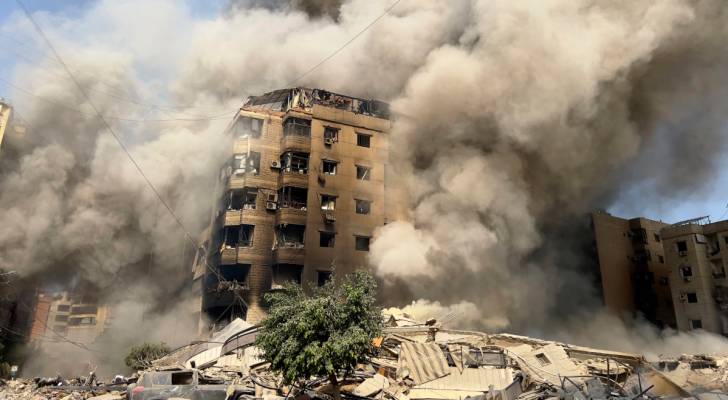Smoke rises as a building collapses in Beirut’s southern suburbs following an ‘Israeli’ attack. (Photo: AP)
China says 'deeply concerned' about Middle East tensions after Nasrallah killing
China said Sunday it was "deeply concerned" and "closely following" soaring tensions in the Middle East, after the Israeli Occupation killed Hezbollah leader Hassan Nasrallah in strikes on Lebanon.
"China is closely following this incident and deeply concerned about the escalation of tensions in the region," Beijing's foreign ministry said in a statement, urging "all parties, particularly Israel, to take immediate steps to cool down the situation."
Read more: UN Secretary-General urges immediate halt to escalation in Lebanon
Yesterday, Hezbollah officially confirmed that the Israeli Occupation airstrike killed their leader, Sayyed Hassan Nasrallah, along with several other Hezbollah commanders on Friday.
The statement honors Nasrallah’s legacy and reaffirms Hezbollah’s commitment to continue their resistance against "Israel" and support for Gaza and Palestine.
Questions surrounding Nasrallah’s have intensified after the end of his 32-year leadership of the Iranian-backed group.
Hashem Safieddine, Nasrallah's cousin and son-in-law of the late Iranian General Qassem Soleimani, is the leading candidate. He has long been groomed to succeed Nasrallah, having led Hezbollah’s executive council and overseeing the group's financial and institutional operations.
Safieddine, listed as a terrorist by the US since 2017, maintains close ties with both Hezbollah’s military and executive wings. Having spent years studying in Qom, Iran, Safieddine shares Nasrallah’s ideological alignment, including strong support for Iran’s Wilayat al-Faqih doctrine.
Speculation over his leadership has grown as Nasrallah’s increasing security concerns have propelled Safieddine into the public eye in recent years, especially in Hezbollah’s military campaigns in Syria and beyond.
Safieddine’s leadership would likely continue Hezbollah’s strategic direction, maintaining close ties with Tehran while supporting regional resistance movements.



